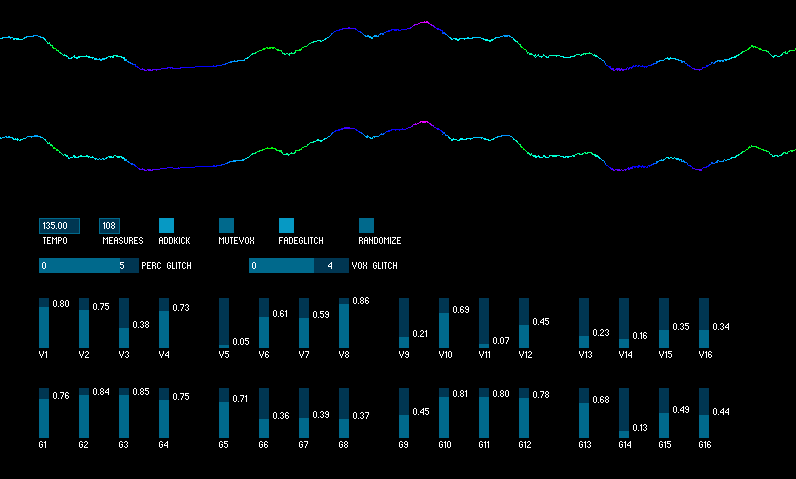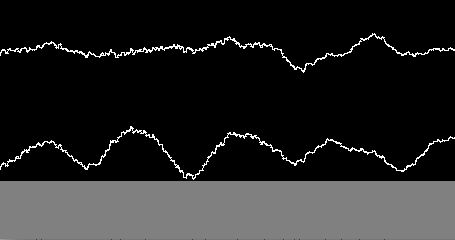I’ve been working on this one for a few days. It follows the same principle as the beat generator from my previous post: whether or not a note is added to the generated sequence at a given step is determined by a probability. However, unlike the beat generator, this one doesn’t sequence distinct sounds. Instead, it is essentially generating timed control changes for effects on two sound files that are continually playing.
The first file is the vocal track from Half Life by Imogen Heap. Its playback rate is adjusted to the chosen tempo and “notes” in the sequence for it are turning on a sample-repeat effect. For each trigger of the effect, the length of the sampled audio is determined randomly based on the settings in the Vox Glitch range.
The second file is a loop from the beginning of Hydra Remix By Koen Groeneveld. The notes in the sequence for that track are setting loop points in a looping FilePlayer, though the resulting sound is the exact same kind of thing going on with the vocals. Once again, the length of the repeated audio is determined based on the settings in the Perc Glitch range. You can also specify whether you want each triggered glitch to fade in over its duration or not, which is kind of a nice effect.
Finally, you can choose to have a steady kick drum play underneath all the glitching to give yourself a good reference point. I’ve had a lot of fun playing with different settings, it’s like endless minimal, glitchy remixes of Imogen Heap. Try it out!


